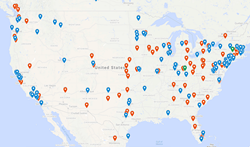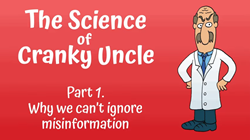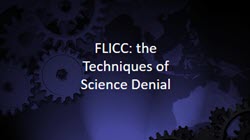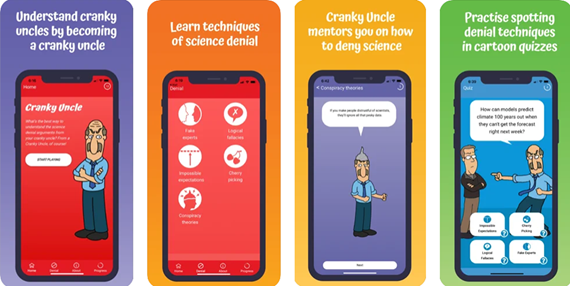Cranky Uncle - Resources for Educators
Posted on 12 January 2022 by John Cook, BaerbelW
This is an adapted repost of the educators' resource page on CrankyUncle.com.
Cranky Uncle uses cartoons, humor, and logic-based inoculation to build resilience against misinformation – an ideal tool for teaching critical thinking to students. This page features resources for educators interested in using Cranky Uncle (the game or the book) to teach critical thinking in their classes. For starters, the game is freely available on iPhones, Androids, and browsers (e.g., for anyone with internet access):
- iPhone – https://sks.to/crankyiphone
- Android – https://sks.to/crankyandroid
- Browser – https://app.crankyuncle.info
This blog post provides an overview of resources for educators about how the Cranky Uncle game can be used in the classroom. We will update the article as additional resources become available.
Teachers’ Guide to Cranky Uncle
| The Teachers’ Guide to Cranky Uncle offers background information and classroom activity ideas for educators interested in using the Cranky Uncle game to teach critical thinking in their classes.
One of the activities in the Teachers’ Guide is the Please Don’t Fail Me assignment, designed by Melanie Trecek-King from Thinking is Power. Melanie has also written a blog post going into greater detail into this assignment and how students responded. |
 |
Group Code for Classrooms
 |
Teachers can sign up for a group code making it quick and easy for students to anonymously enter the game (avoiding the need to enter an email to play the game). So far, teachers have signed up from 37 U.S. states and 16 other countries. While the bulk of sign-ups are from the U.S., we’re also seeing teachers from Australia, Austria, Belgium, Canada, France, Germany, India, Singapore, and the UK. Note to all the teachers from non-English speaking countries – yes, a multi-lingual version of the game will be released later this year and translated teachers' resources will be made available as time allows. |
Cranky cartoons
| A collection of cranky cartoons – each representing a different logical fallacy from the FLICC taxonomy – are available in 1920 x 1080 JPEGs. Each image also links to a high-resolution PDF so you can print out the cartoons. |  |
The Science of Cranky Uncle
 |
The video series The Science of Cranky Uncle provides detailed background information about the science underlying the game. The videos are based on the paper Cranky Uncle: a game building resilience against climate misinformation published in the journal Plus Lucis. The paper is a not too technical explanation of the scientific research that informed the design of the Cranky Uncle game. John Cook delves into inoculation theory, logic-based inoculation, critical thinking and the FLICC taxonomy, the use of parallel arguments in the form of cartoons to debunk misinformation, and games as a way to deliver active inoculation. |
Powerpoint of FLICC denial techniques
| The Powerpoint of FLICC denial techniques includes definitions of the various rhetorical techniques and logical fallacies in the FLICC taxonomy, as well as a number of cartoon examples. The accompanying blog post provides some more context and links to releated videos. |  |































 Arguments
Arguments

































Comments